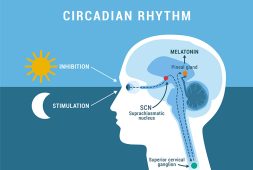
Have you been indulging in a nightly glass of wine since the general advice out there is that it promotes good heart health? It may actually be time to rethink that daily drink.
That’s because a recent study has found that the idea of moderate drinking having a positive effect on one’s lifespan is actually not completely true. The findings were published in JAMA Network Open, showing a comprehensive meta-analysis of 107 studies that involved over 4.8 million individuals.
Much to their surprise, the research found that individuals that consumed one to two drinks per day, which is equivalent to around 25 grams (g) of alcohol, were faced with a similar risk of premature death as those who abstain from alcohol completely throughout their lifespan.
Many people are under the notion that one drink a day is good for their heart and one’s overall health. However, the study findings, as shared by lead study author and scientist at the Canadian Institute for Substance Use Research at the University of Victoria, Jinhui Zhao, PhD.
Although there are some smaller studies throughout the years that have hinted at this potential benefit, more recent findings – taken from a number of bigger and newer studies – share compelling evidence that this is actually contradictory to this notion, explains Dr. Zhao in the Harvard Gazette.
“The take-home message is to be skeptical of the idea that alcohol in moderation results in improved health,” Dr. Zhao says.
Furthermore, Dr. Zhao also adds that the new analysis also contributes to the new studies which show the link between serious health risks and heavy drinking.
Drinking May Affect Women More than Men
The study reveals that individuals consuming more than 45g of alcohol daily, roughly equivalent to three drinks, face a 19 percent higher likelihood of premature death compared to lifelong abstainers. Moreover, those consuming 65g or more of alcohol daily, close to five drinks, have a 35 percent increased risk of premature death.
While individuals consuming 24 to 44g of alcohol daily, approximately two to three drinks, also displayed an elevated mortality risk compared to non-drinkers, the results did not reach statistical significance, indicating that the difference may be due to chance.
Interestingly, the analysis suggests that heavy drinking poses a greater danger to women than to men. Among individuals consuming at least 65g of alcohol daily, women showed a 61 percent increased risk of premature death, in contrast to a 34 percent increased risk for men.
A professor of medicine at the University of California in San Francisco, who wasn’t involved in the new analysis, Gregory Marcus, MD, says “These differences by biological sex are quite consistent among studies of alcohol and they likely have various influences due to differences in body size.”
“All else being equal, the blood alcohol concentration, and likely the duration of that exposure, will be higher for smaller people consuming the same amount of alcohol as larger people,” Dr. Marcus says.
It is worth noting that the analysis utilized Canadian guidelines for defining a standard drink, which equates to 13.4g of pure alcohol. For reference, a standard drink could be a 12-ounce (oz) bottle of beer or cider, a 5-oz glass of wine, or a 1.5-oz. shot of spirits.
Strong Results Despite Limitations of Study
Despite some limitations, such as studies primarily capturing alcohol consumption at a single point in time, thus potentially overlooking changes in drinking habits, the study’s results remain robust. Additionally, the categorization of lifelong non-drinkers alongside individuals who abstained for health reasons may introduce some inaccuracies in comparing drinking levels to complete abstention.
Consequently, Jennie Connor, PhD, MPH, an alcohol researcher and professor emerita at the University of Otago in New Zealand, who was not involved in the study, emphasizes that the findings suggest no one should embrace a glass of wine solely for the purpose of improving their health. It is essential to reevaluate the commonly held belief that moderate drinking offers significant health benefits.
Dr. Connor says, “The evidence of a health benefit from alcohol for cardiovascular disease, that was previously widely promoted, is now very dubious and seems to disappear when the flaws and biases in the research studies are accounted for.”



